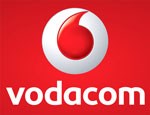
Related
Top stories






More news


Marketing & Media
Ads are coming to AI. Does that really have to be such a bad thing?














A spoof campaign by Cell C, developed by DDB South Africa on a project basis (Ogilvy remains Cell C's agency of record - see box below) and poking fun at Vodacom rebranding its corporate colour red, has, according to tech news site Techcentral, led to Vodacom's agency Draftfcb threatening legal action against the creative director behind both the Vodacom rebrand and the Cell C spoof campaign.
Grant Jacobsen was employed by Draftfcb on the Vodacom rebrand but left the agency in December 2010 for DDB, where he was placed on the rival Cell C account. Essentially, Jacobsen is spoofing his own work (for Vodacom) for a competitor brand (Cell C).
So the current debate centres around Draftfcb's belief, apparent through its stated recourse to possible legal action, that the success of Jacobsen's Cell C campaign rested on confidential client information. Jacobsen is on record as denying any wrongdoing in this matter.
A few points to answer to
Obviously, Draftfcb has quite a few points to answer to - why did it not pay out a restraint-of-trade agreement that would have left Jacobsen comfortably out of any competitor's reach if he were the key strategist on a R200 million campaign being one; why it did not have a strategy in place to respond to competitor advertising poking fun at the relaunch being another - but its concern must certainly be that it is now quite obvious that the matter of client confidentiality and its enforceability has exploded in the public domain.
Whether any wrongdoing took place is a moot point at this stage - clients will be wondering if they haven't over-shared company secrets with agencies promising "special client-agency" relationships. If a senior strategist leaves one agency for another, what guarantee do they have that their secrets stay secret?
Probably none at the moment. Breach of legal confidentiality agreements are hard to prove, especially if you need to quantify and prove damages.
Draftfcb's lawyers should have told them by now that this is a long, draining process, that it is going to cost them a lot of money and take up management time for years to come.
Or maybe not. If the agency is smart, it will drop talk of legal action in a judicial system that grinds along at a snail's pace - every second for which is billed for by the legal fraternity, to be sure.
Should approach the ACA
Instead, it should approach the industry's self-regulatory body, the Association for Communication and Advertising (ACA), to engage in a public and transparent debate about the legal limitations of confidentiality agreements, and the imperative for agencies to agree that any such perceived breach of trust is bad for everybody. The ACA can enforce its code on members much more effectively than law courts can enforce legal agreements.
ACA members might do well to agree that, for the benefit of all, agencies will not employ recently poached senior talent on rival brand campaigns for a set period of time. It keeps talented people in work, but keeps trade secrets out of reach of rival brands, and moves toward re-establishing the trust relationship between client and agency.
For the moment, Draftfcb CEO John Dixon has exited the debate, saying proceedings are sub judice, when he should be driving the conversation, probably alongside DDB CEO Glen Lomas, who has as much to lose if his clients think their own trade secrets are at risk or that the agency is blind to outside perception (as, in fact, they have seemed to be in this particular matter). The industry is poorer for it and the lawyers are laughing all the way to the bank.
For more:
For More list updated at 10.55am on 13 April 2011.
